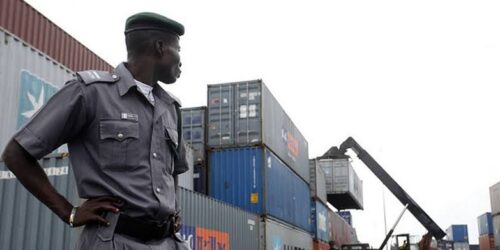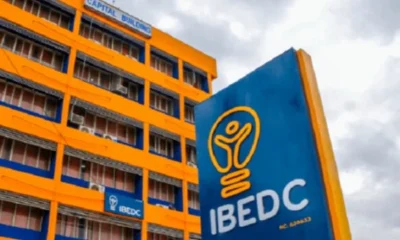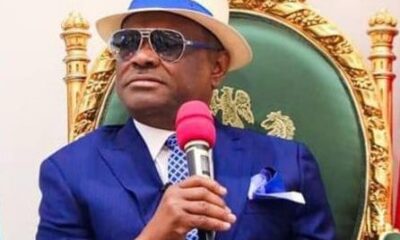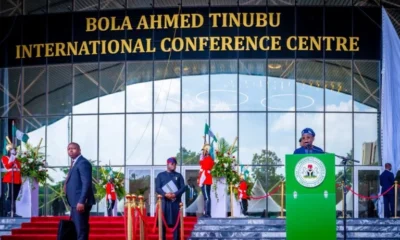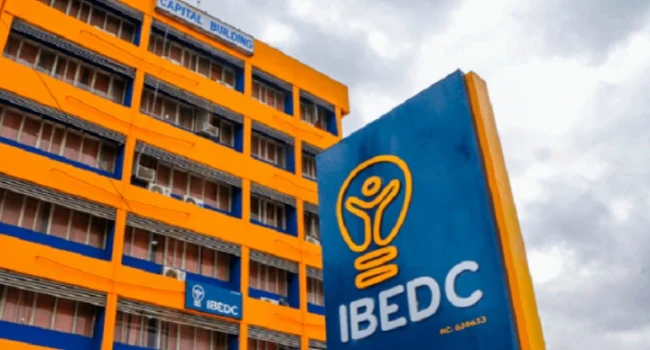- Economists berate FG, say policy will cause job loss, impoverish Nigerians, worsen hardships.
The Central Bank of Nigeria and the Nigeria Customs Service have extended the current foreign exchange reforms to the maritime industry, with a 40% increase in the exchange rate used to calculate import duty.
On Saturday, the NCS increased the exchange rate from N422.30 to N589 per dollar to be utilized in calculating import duties.
Clearing agents, freight forwarders, and importers have demanded an immediate change in the policy in response to the development, which has resulted in a commensurate 40 percent increase in import duty on imported commodities, including autos.
Stakeholders predicted that the strategy would cause a sharp decline in the quantity of imported automobiles as well as job losses in the maritime industry.
This, they said, could affect business and economic growth. Economists also said the government was insensitive, saying the policy was capable of affecting Nigerians negatively.
The development came barely one month after the Federal Government removed fuel subsidy and floated the naira. It also came at a time Discos began a gradual increase of their tariff.
The National Public Relations Officer, NCS, Abdullahi Maiwada, who confirmed the new exchange rate on its portal, said the agency was only implementing a CBN policy.
He said, “Whatever you see in our system is what has been communicated to us. It is determined by the Central Bank of Nigeria. So whatever we are using is what is obtainable as communicated to us. It is a monetary policy, we only implement what is given to us. It is a monetary policy and anything monetary is not determined by us, it is determined by the CBN. We only use what is communicated to us.”
Also confirming the development, the Youth Leader of the Association of Nigerian Licensed Customs Agents, at Tin Can Island, Remilekun Sikiru, said that the new rate had been effected on the Customs portal.
The new rate was confirmed on the Customs portal on Sunday.
Sikiru, also the CEO of Siktemstar Logistics, said that the customs duty payable on vehicles had increased astronomically.
He said, “For instance, the total duty payable on a Toyota Camry was N901,000 before now; but it has been increased to N1,270m; duty payable on Venza was N1.632m before now, but it has been increased to N2.278m. In the same vein, Toyota Corolla was N786,000, but now it has been increased to N1.097m while Lexus Rx which used to cost N1,828,000 now costs N2,550,447.”
He added, “It’s pathetic. We woke up to see this in the early hour on Saturday 24th of June 2022. The Federal Government needs to reverse this.”
According to him, this development may lead to cargo including vehicles being trapped at the terminals.
“The customs duty has been increased and it will lead to a heavy increment in duty payment on general goods/cargo. This will bring hardship on importers”
Also speaking, a freight forwarder and Chief Executive Officer, 2B Frank Nigeria Limited, Nwegbe Frankypaul, said, “Freight forwarders woke up on Saturday to realize that dollar rate has been increased from about N423 per dollar to about N590 per dollar.”
Nwegbe pleaded with the President to ensure depreciation on the value of older vehicles.
Reacting to this, the Chief Executive Officer of the Center for the Promotion of Private Enterprises, Dr Muda Yusuf, said the government needed to reverse the policy due to its effect on Nigerians and the economy.
“This has nothing to with either supporting or negating the unification of the exchange rate. What I think is that this will translate to an additional burden on the citizens and businesses. The bottom line is that import duties have increased. The citizens have not recovered from the fuel subsidy removal, they are still expecting palliatives which have not come. Now, the Discos are talking about increasing the electricity tariff. How will the citizens feel? I don’t think the Federal Government is being sensitive to the plight of the people. Whoever gave the directive is not being sensitive; they should be talking about reducing some of these tariffs so that transportation costs can be reduced. The palliative is not only for salary earners, the government should do a palliative scheme that will affect everybody.
Also speaking, the Founder of the National Council of Managing Directors of Licensed Customs Agents, Mr. Lucky Amiwero, said, “The moment you allow the naira to float freely in terms of exchange, that is what you get. And it is going to affect the prices of goods. It is going to take a lot of licensed Customs agents out of work because most of them are going to lose their customers.”
The Vice President of the National Association of Government Approved Freight Forwarders, Nnadi Ugochukwu, while remarking, said, “It will affect businesses, there is a container I have for someone, before now, we used to clear that container for N4.3m. With the new exchange rate, the clearing cost is now N6.5m.”
Also speaking, the Secretary General of NCMDLCA, Mr. Festus Ugu, “Even if the Federal Government wants to do exchange rate harmonization, they should know how to go about it. This increase is a very big one.”
However, an economist, Mr. Ibrahim Tajudeen, said the policy “is in line with the overall reform of the foreign exchange market by the government. Also, it is not the first time that we are seeing such a thing. A few years ago when the currency was devalued, the exchange rate for clearing goods also increased. So it is consistent with the development or reforms going on in the foreign exchange market. Nevertheless, I recognize that Nigerians are going to feel the negative impact. And I think the government has to do something to help the masses at some point.”
It was earlier reported that the CBN directed Deposit Money Banks to remove the rate cap on the naira at the official Investors’ and Exporters’ Windows of the foreign exchange market.
This came barely a few weeks after President Bola Tinubu promised to unify the nation’s multiple exchange rates and less than a week before the suspension and detention of CBN Governor Godwin Emefiele, whose unorthodox monetary policies had become a stumbling block to investors and the economy.
The CBN’s decision to float the currency was hailed by the organized private sector and economists who said the move would unify the country’s multiple exchange rates and bring sanitize the FX market.
The development means buyers and sellers of foreign currency in the official FX markets are now allowed to quote rates they find comfortable in the FX market, as against the previous practice where rates were dictated by the Central Bank of Nigeria.
Following the development, the naira has been on a free fall, weakening to 770.19/dollar at the close of trading at the I&E Window on Thursday, according to data from the FMDQ Securities Exchange.
Credit: The Punch

 BIG STORY2 days ago
BIG STORY2 days ago
 BIG STORY3 days ago
BIG STORY3 days ago
 BIG STORY21 hours ago
BIG STORY21 hours ago
 BIG STORY3 days ago
BIG STORY3 days ago
 BIG STORY2 days ago
BIG STORY2 days ago
 BIG STORY3 days ago
BIG STORY3 days ago
 BIG STORY2 days ago
BIG STORY2 days ago
 BIG STORY3 days ago
BIG STORY3 days ago




